Depression
Darkness in a firefighters soul At first you don't notice, they are small shadows in your everyday routine. Day by day,...
Posted by URnotAlone.support on Friday, May 6, 2016
Depression manifests itself differently in every individual but as a whole it can affect one's ability to work, sleep, eat and enjoy once pleasurable activities.

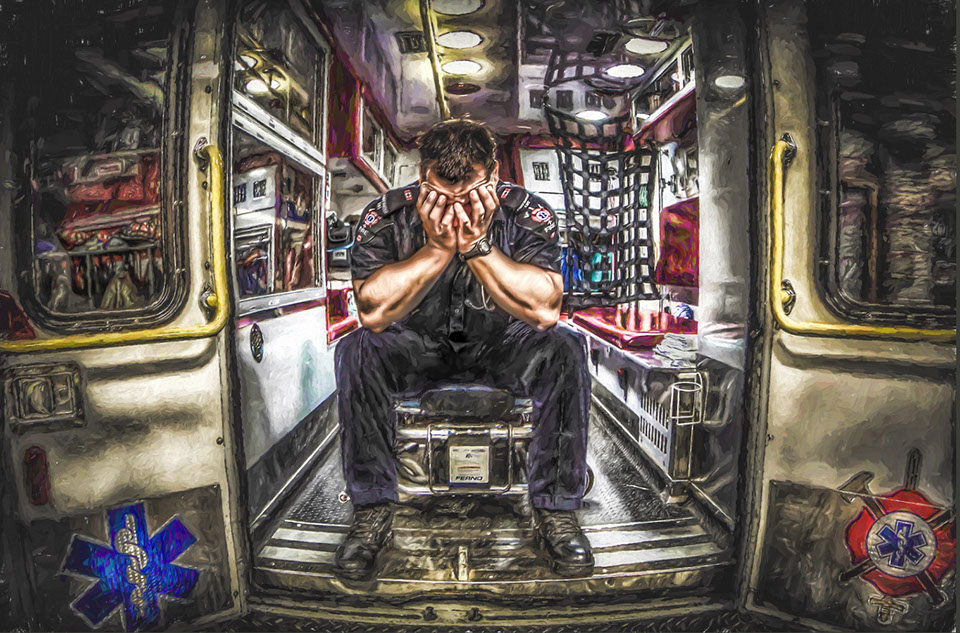
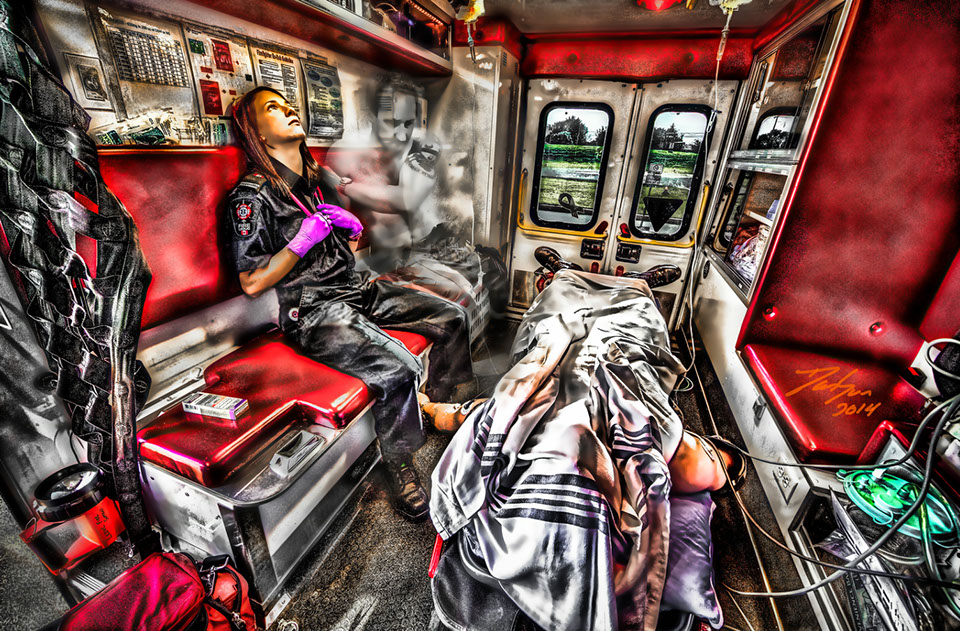
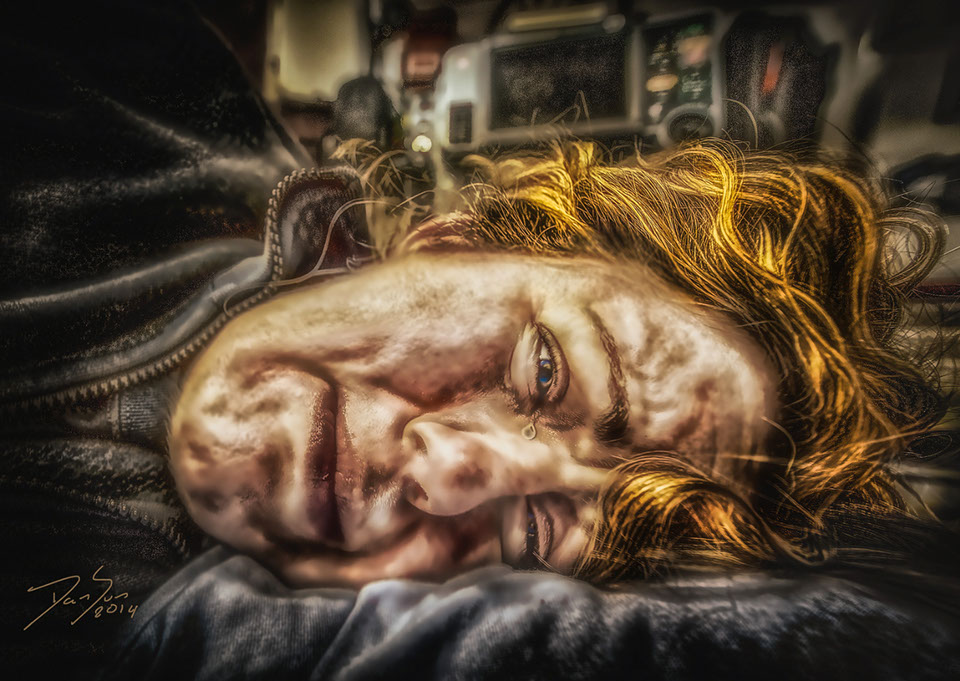
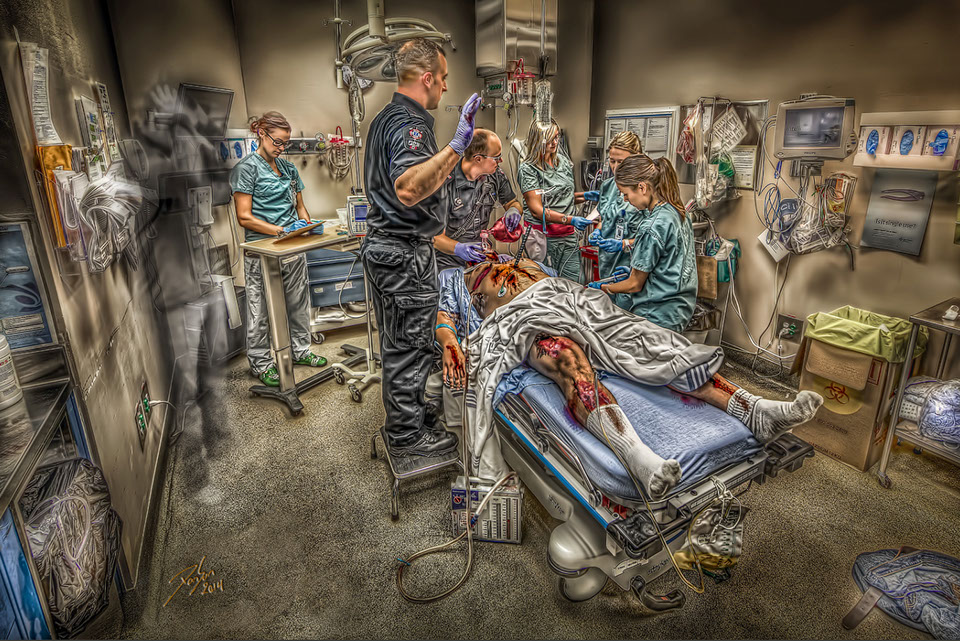
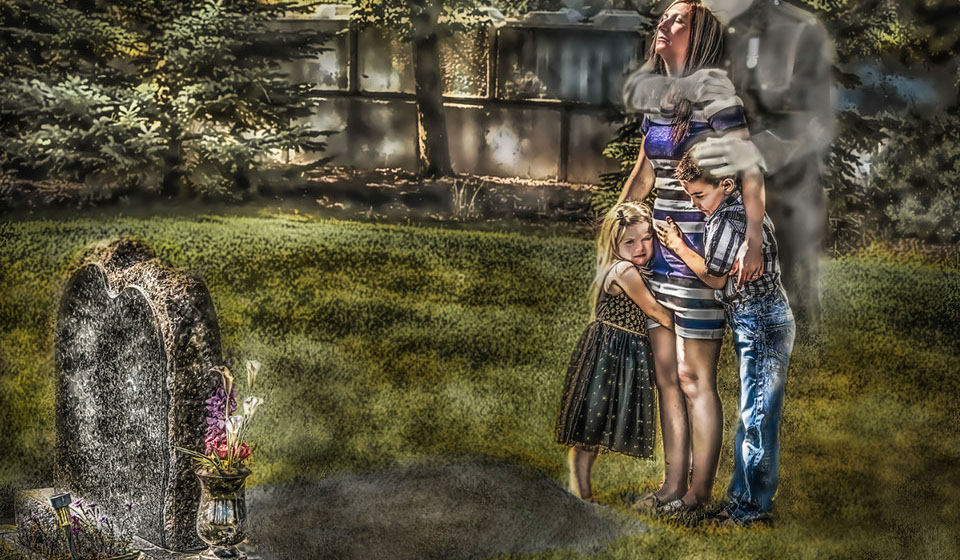
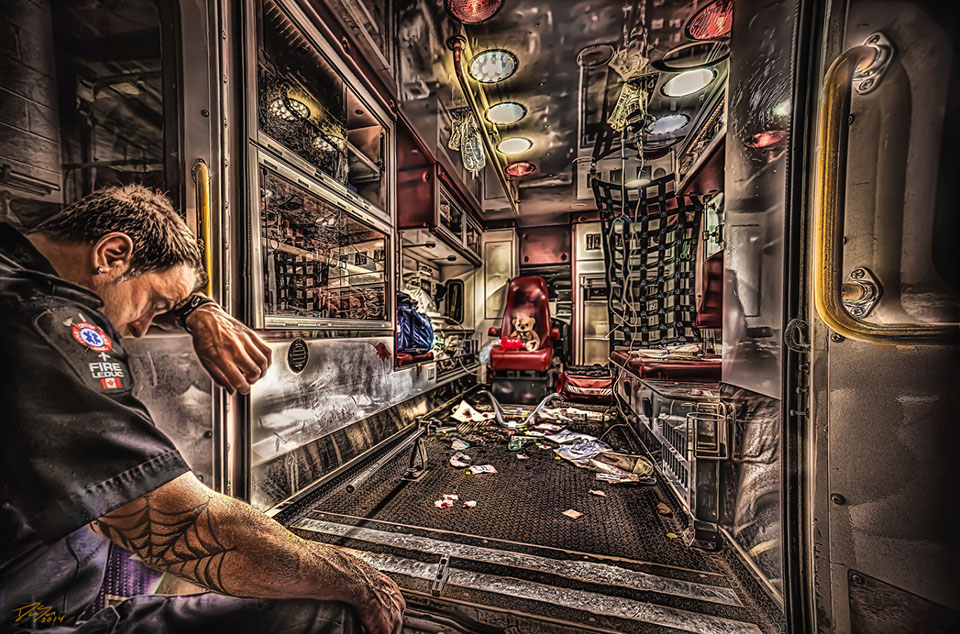
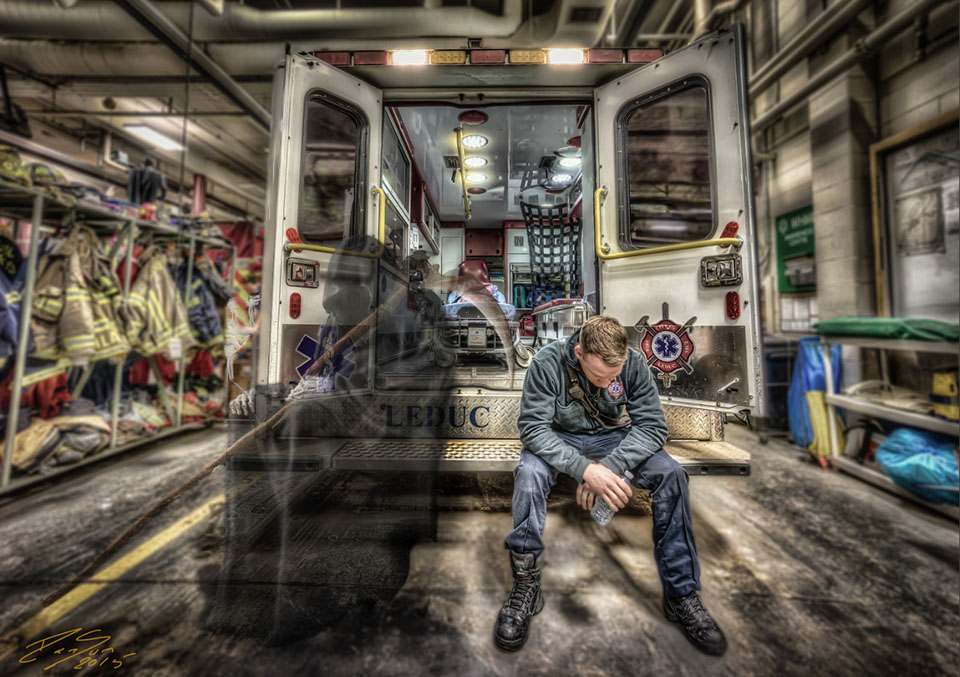
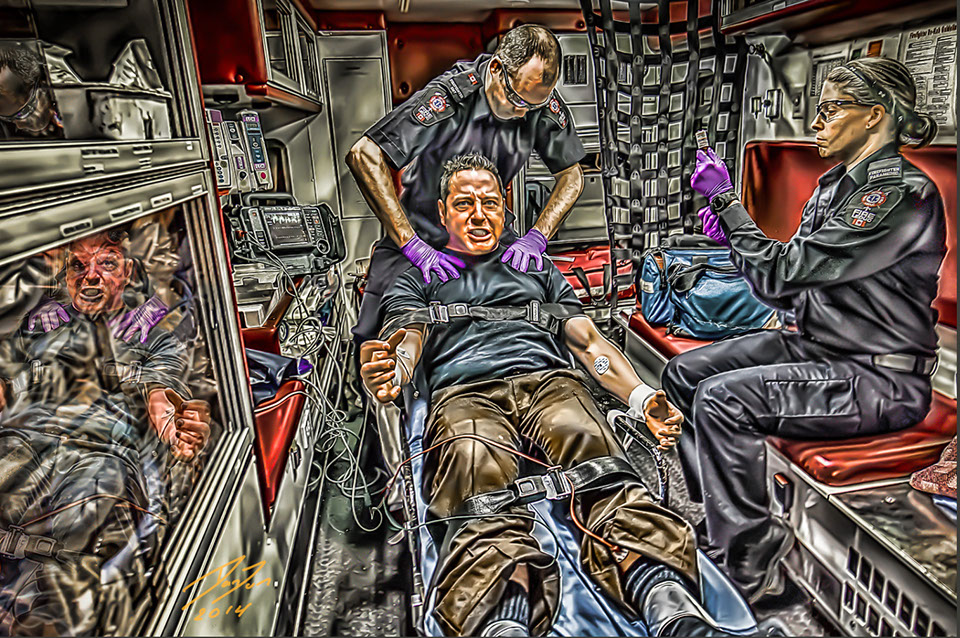
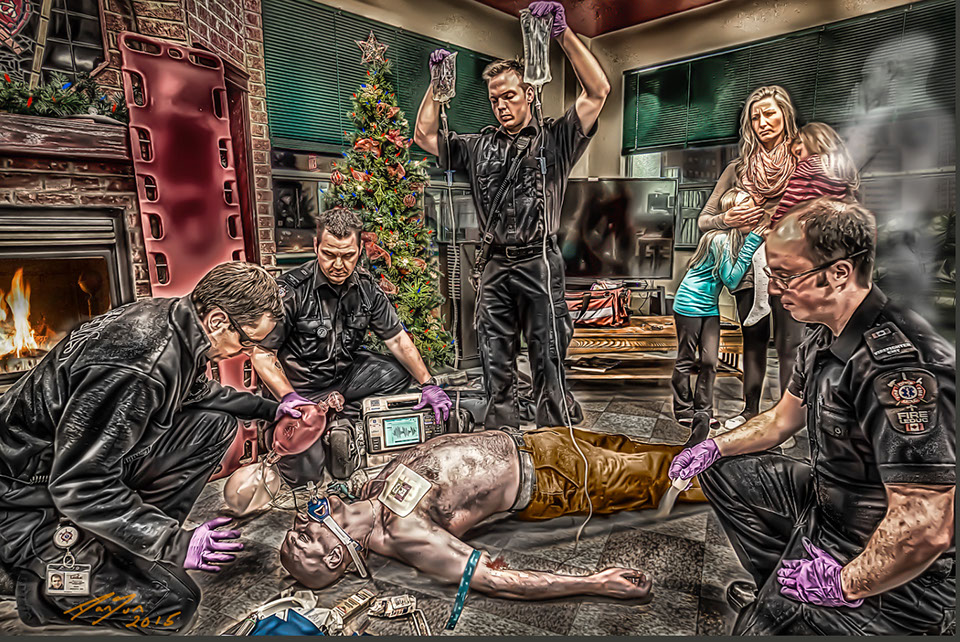
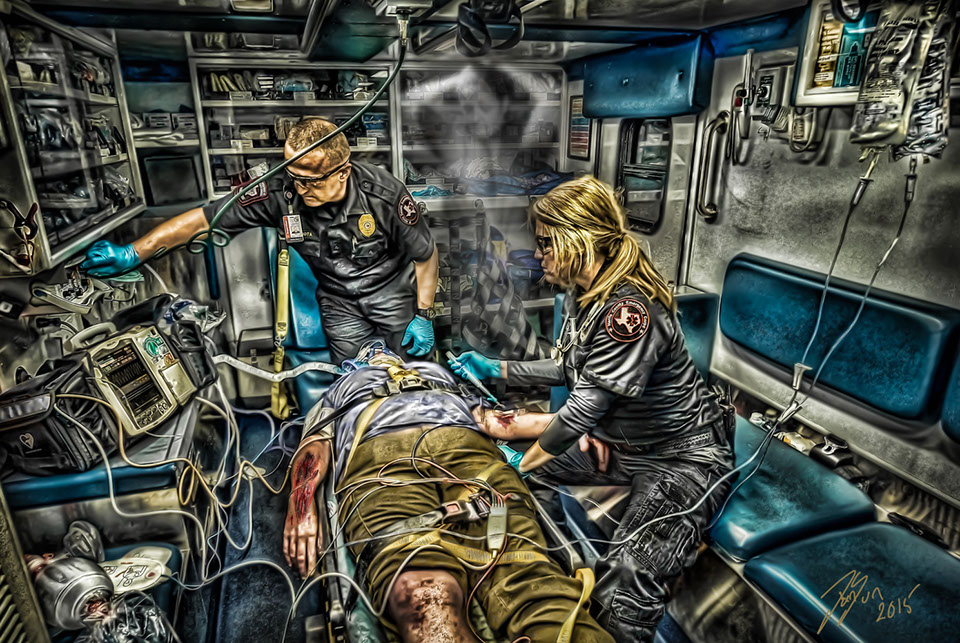
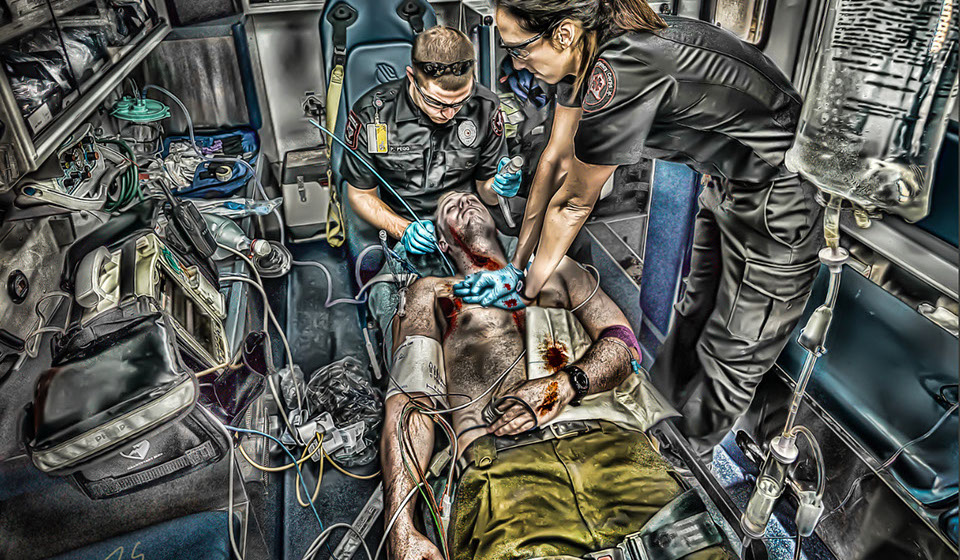
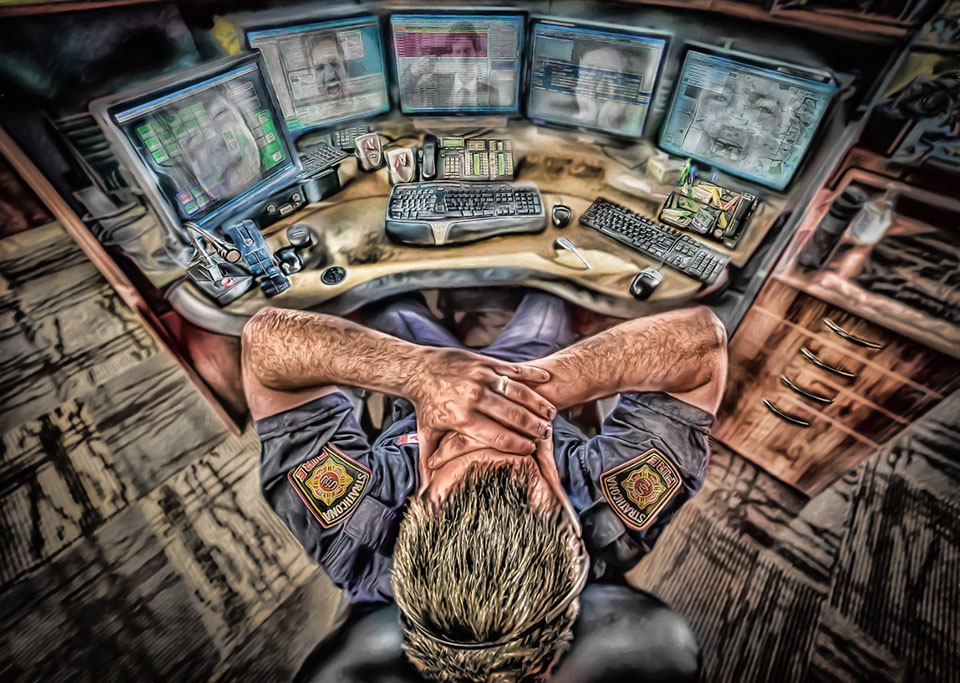
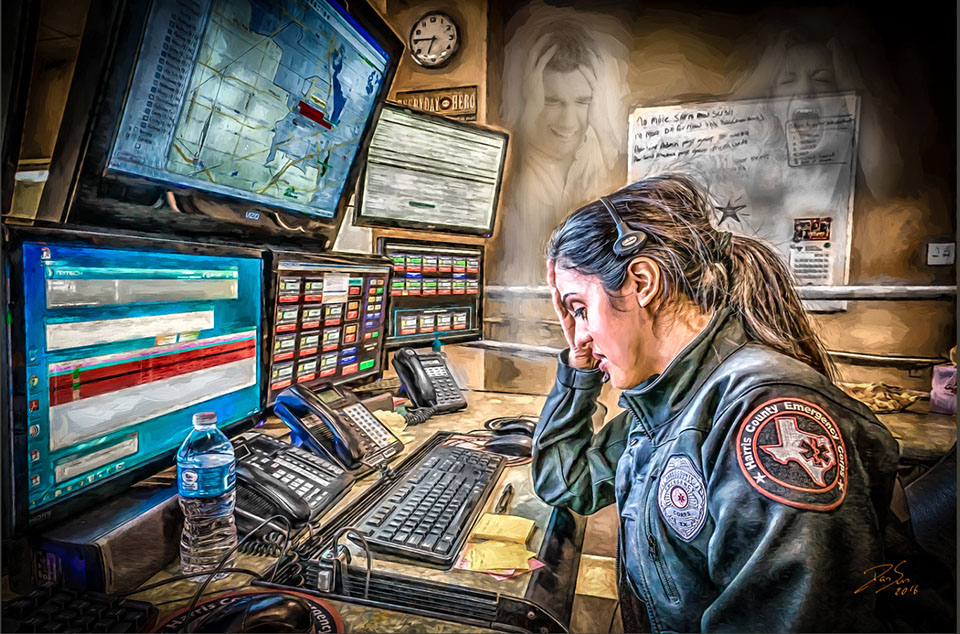
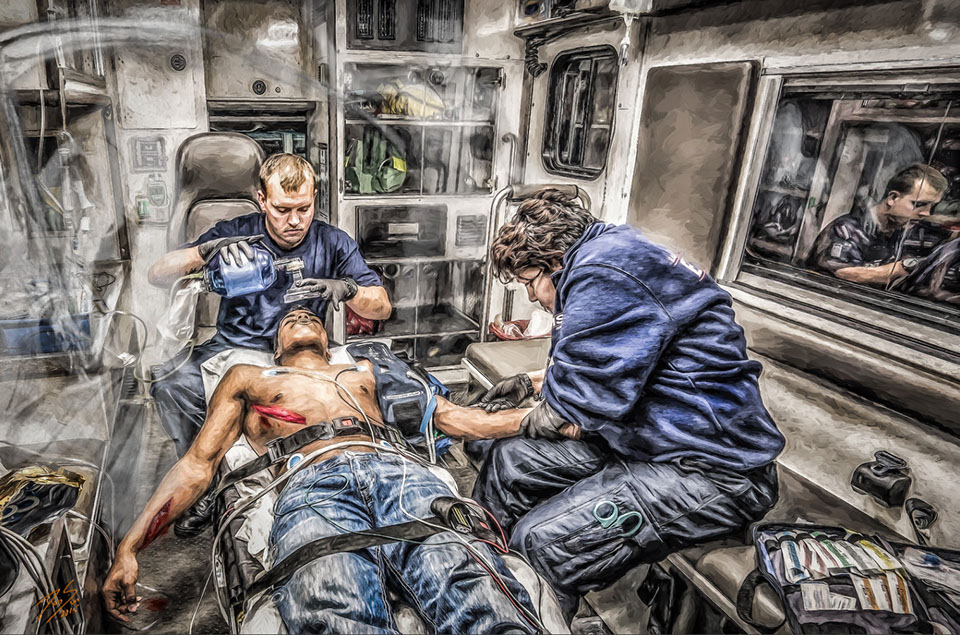
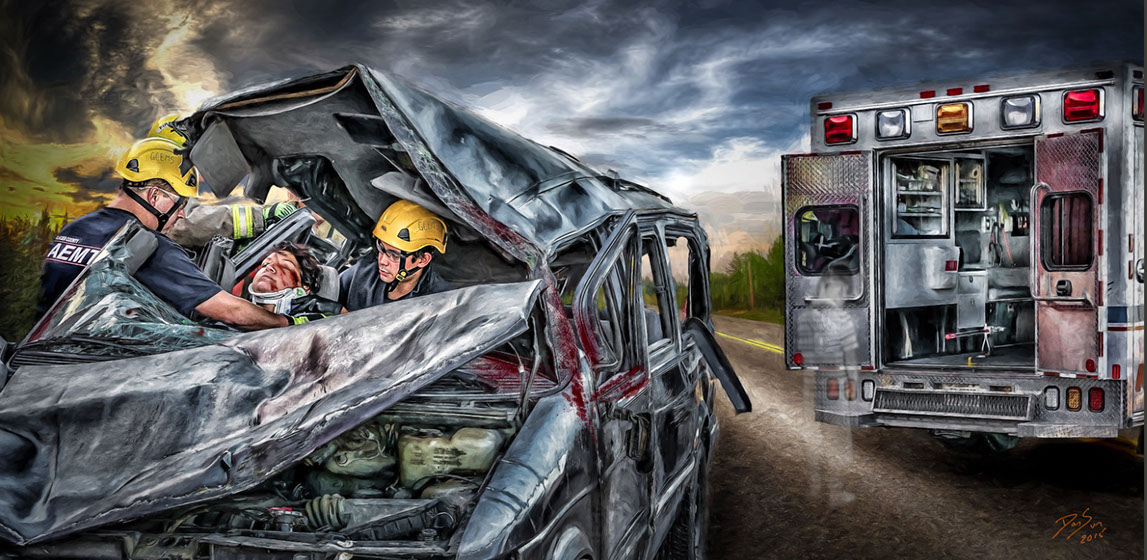
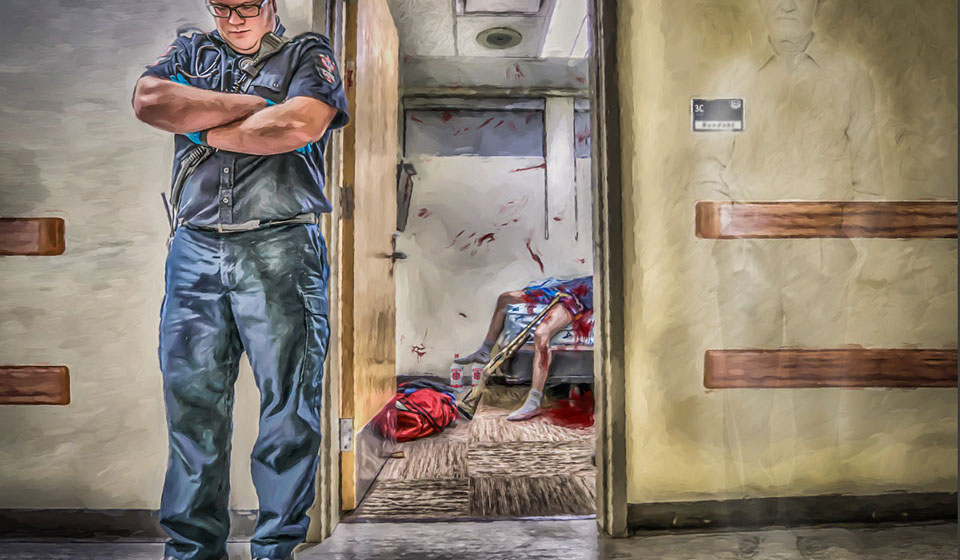
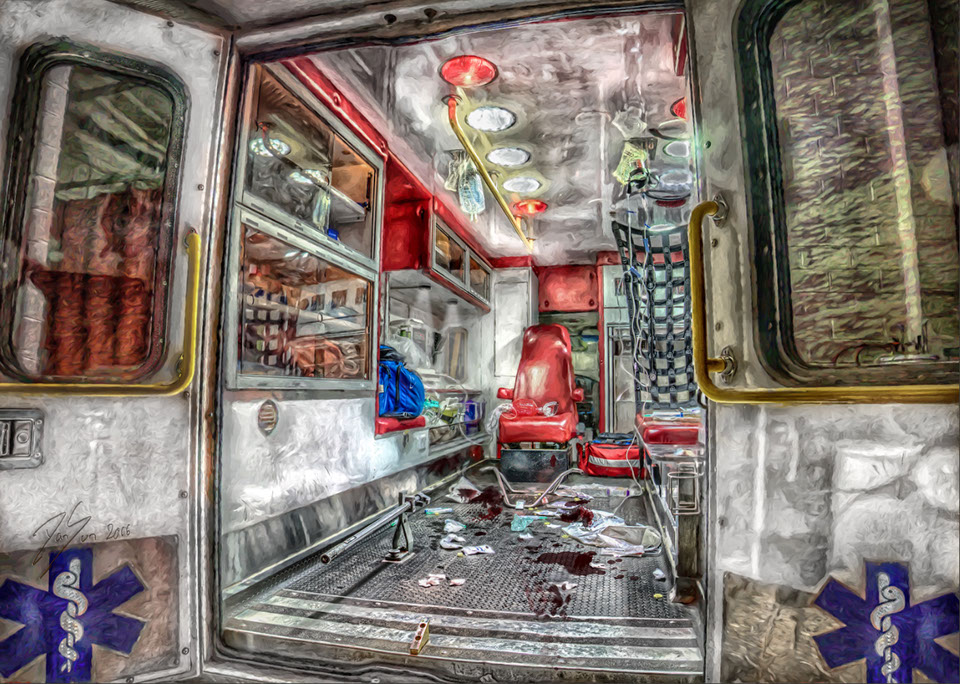
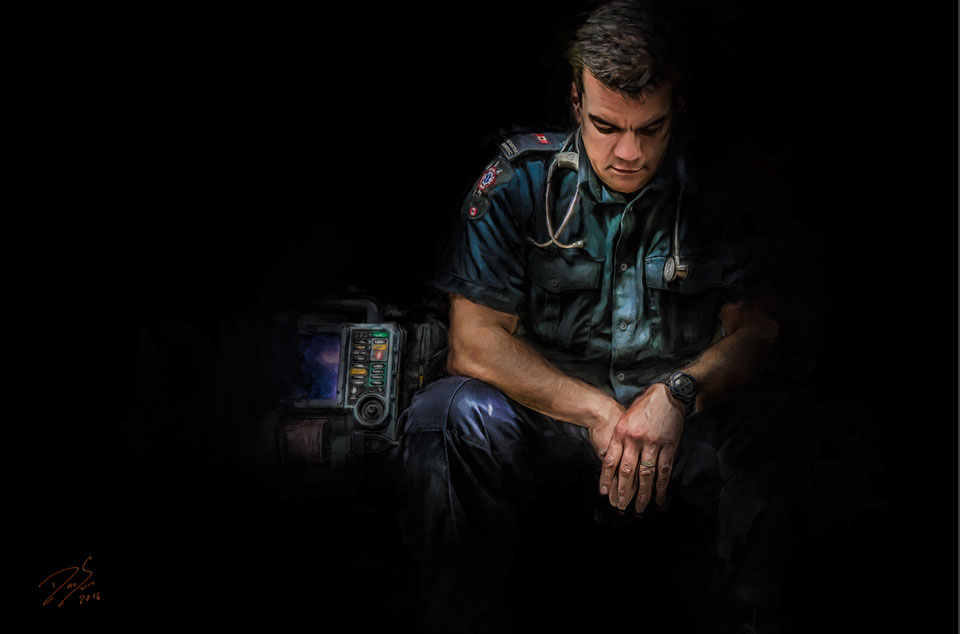
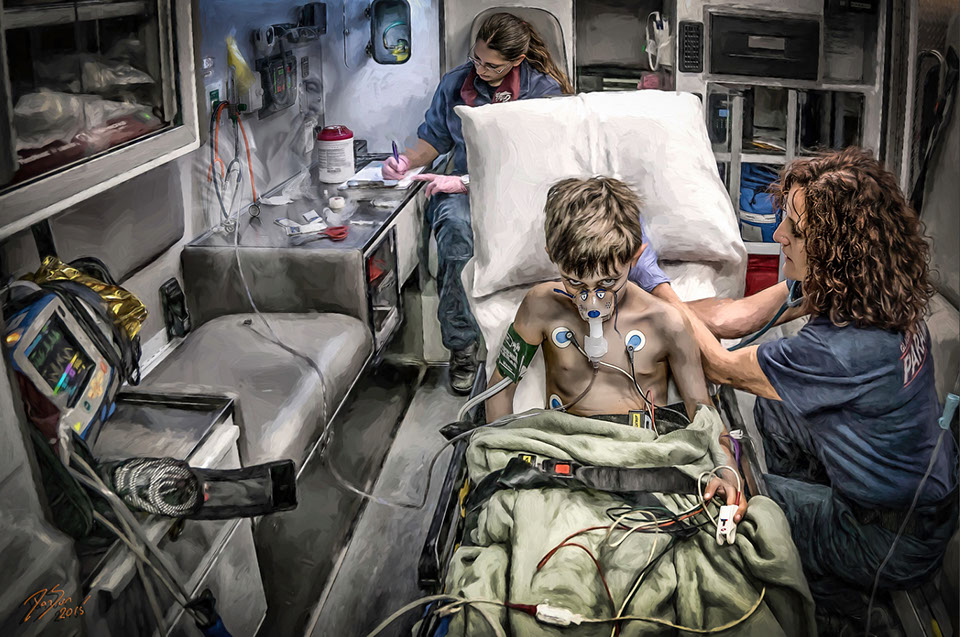
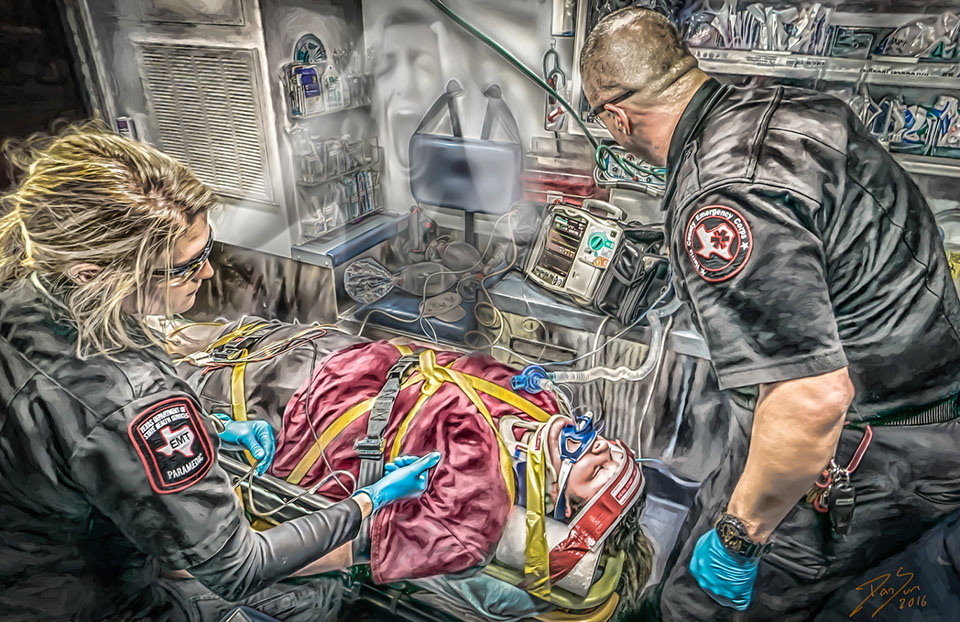
SYMPTOMS OF DEPRESSION AMONG FIRST RESPONDERS
08/12/2014
By Mark Lamplugh
Everyone else is running away from the fire, but you"re charging right into it. Gunfire rings out in a crowded store and people scatter, but you run toward the sound of the shots. You are the bravest among us--first responders facing danger to keep others safe. But who is looking out for you and your emotional wellbeing?
While most of society deals with the fight or flight response on a rather limited basis, for first responders like police officers, firefighters and other emergency personnel it can happen on almost a daily basis. The psychological toll that prolonged stress takes on first responders varies widely, but can often be long-lasting and come in the form of depression.
Symptoms of Depression
Depression manifests itself differently in every individual but as a whole it can affect ones ability to work, sleep, eat and enjoy once pleasurable activities. Symptoms of depression can include:
- Persistent sad, anxious, or "empty" feelings
- Feelings of hopelessness
- Feelings of guilt, worthlessness, and/or helplessness
- Irritability, restlessness
- Loss of interest in pleasurable activities, including sex
- Fatigue and decreased energy
- Difficulty concentrating, remembering details and making decisions
- Sleep issues including insomnia, early-morning wakefulness, or excessive sleeping
- Overeating or appetite loss
- Thoughts of suicide, suicide attempts
- Persistent aches or pains, headaches or other physical distress
First responders are often at a greater risk of suffering from depression than other professions because of both the nature of their jobs and the culture in which they operate. The whole "suck-it-up tough guy" image of first responders can hinder individuals who are suffering in silence to get the help they need.
Resources are available for those who may be suffering and not know where to turn for help. Admitting there may be an issue is the first step. Talking to a supervisor or chaplain about these issues can also facilitate the healing process. To address the growing need for behavioral health support and resources, American Addiction Centers has created a program aimed at helping law enforcement officers and their families. This dedicated hotline is available at 1.855.99.POLICE (765423). Additionally, the National Volunteer Fire Council (NVFC) has launched Share the Load, a support program for firefighters and EMS. As part of that program, the NVFC has partnered with American Addiction Centers to create the Fire/EMS Helpline, a free, confidential helpline available 24 hours a day, 7 days a week to assist firefighters, EMTs and their families. Callers receive compassionate, non-judgmental support for a variety of behavioral health issues, such as PTSD, addiction, depression, suicide prevention, stress or anxiety, critical incidents, relationship issues, or other issues affecting their work or personal life. The helpline is available at 1-888-731-FIRE (3473).
Mark Lamplugh is a former fire captain with Lower Chichester Fire Company. Originally posted at http://blog.americanaddictioncenters.org/depression-among-first-responders/
Article from fireenginering @ fireenginering.com
DEPRESSION
Depression may be described as feeling sad, blue, unhappy, miserable, or down in the dumps. Most of us feel this way at one time or another for short periods. True clinical depression is a mood disorder in which feelings of sadness, loss, anger, or frustration interfere with everyday life for a long period of time. Depression affects about 19 million Americans annually. It is estimated to contribute to half of all suicides. About 5%-10% of women and 2%-5% of men will experience at least one major depressive episode during their adult life. Depression affects people of all races, incomes, ages, and ethnic and religious backgrounds, but it is three to five times more common in the elderly than in young people.
Causes, incidence, and risk factors
- The exact cause of depression is not known. Many researchers believe it is caused by chemical imbalances in the brain, which may be hereditary or caused by events in a person's life.
- Some types of depression seem to run in families, but depression can also occur in people who have no family history of the illness. Stressful life changes or events can trigger depression in some people. Usually, a combination of factors is involved.
- Substance abuse: While it has long been believed that depression caused people to misuse alcohol and drugs in an attempt to make themselves feel better (self-medication), it is now thought that the reverse can also be the case; substance abuse can actually cause depression.
There is no single cause of major depression.
There is no single cause of major depression. Psychological, biological and environmental factors may all contribute to its development. Whatever the specific causes of depression, scientific research has firmly established that major depression is a biological, medical illness.
- Norepinephrine, serotonin and dopamine are three neurotransmitters (chemical messengers that transmit electrical signals between brain cells) thought to be involved with major depression.
- "Scientists have also found evidence of a genetic predisposition to major depression"Scientists believe that if there is a chemical imbalance in these neurotransmitters, then clinical states of depression result. Antidepressant medications work by increasing the availability of neurotransmitters or by changing the sensitivity of the receptors for these chemical messengers.
- Scientists have also found evidence of a genetic predisposition to major depression. There is an increased risk for developing depression when there is a family history of the illness. Not everyone with a genetic predisposition develops depression, but some people probably have a biological make-up that leaves them particularly vulnerable to developing depression.
- Some illnesses such as heart disease and cancer and some medications may also trigger depressive episodes.
- It is also important to note that many depressive episodes occur spontaneously and are not triggered by a life crisis, physical illness or other risks.
A number of factors can play a role in depression:
- Life events or situations, such as: Breaking up with a significant other, illness or death in the family, or parents divorcing (for adolescents)
- Repetitive traumatic calls
- Childhood events, such as abuse or neglect
- Divorce, death of a friend or relative, or loss of a job (for adults)
- Social isolation (common in the elderly)
- Medical conditions such as hypothyroidism (underactive thyroid), medications (such as sedatives and high blood pressure medications), cancer, major illness, or prolonged pain
- Sleeping problems, Sleep deprivation
- Alcohol or drug abuse
Symptoms
Agitation, restlessness, and irritability
Dramatic change in appetite, often with weight gain or loss
Extreme difficulty concentrating
Fatigue and lack of energy
Feelings of hopelessness and helplessness
Feelings of worthlessness, self-hate, and inappropriate guilt
Inactivity and withdrawal from usual activities, a loss of interest or pleasure in activities that were once enjoyed (such as sex)
Thoughts of death or suicide
Trouble sleeping or excessive sleeping
Depression can appear as anger and discouragement, rather than as feelings of hopelessness and helplessness. Use of alcohol or illegal substances may be more likely to occur.
Even Medicines that you take for other problems could cause or worsen depression, check with your doctor.
Treatment
- Medicines that you take for other problems could cause or worsen depression. You may need to change them. DO NOT change or stop taking any of your medications without consulting your doctor.
- People who are so severely depressed that they are unable to function, or who are suicidal and cannot be safely cared for in the community may need to be treated in a psychiatric hospital.
- Most people benefit from antidepressant drug therapy, along with psychotherapy. As treatment takes effect, negative thinking diminishes. It takes time to feel better, but there are usually day-to-day improvements.
Prevention
- Take medications correctly and learn how to manage side effects.
- Learn to watch for early signs that depression is becoming worse and know how to react when it does.
- Try to exercise more, seek out other activities that bring you pleasure, and maintain good sleep habits.
- Avoid alcohol and illegal drugs. These substances can make the depression worse over time, and may also impair your judgment about suicide.
- When struggling with your depression, talk to someone you trust about how you are feeling. Try to be around people who are caring and positive.
- Try volunteering or getting involved in group activities.
Types of help (See also Types of Counseling)
- Cognitive behavioral therapy teaches depressed people ways of fighting negative thoughts. People can learn to be more aware of their symptoms, learn what seems to make depression worse, and learn problem-solving skills.
- Psychotherapy can help someone with depression understand the issues that may be behind their behaviors, thoughts, and feelings.
- Joining a support group of people who are experiencing problems like yours can also help. Ask your therapist or doctor for a recommendation.
References
•Fava M, Cassano P. Mood disorders: Major depressive disorder and dysthymic disorder. In: Stern TA, Rosenbaum JF, Fava M, Biederman J, Rauch SL, eds. Massachusette General Hospital Comprehensive Clinical Psychiatry. 1st ed. Philadelphia, Pa: Mosby Elsevier; 2008:chap 29.
•American Psychiatric Association. Practice guidelines for the treatment of patients with major depressive disorder. 2nd ed. September 2007. Accessed January 22, 2010.
•Little A. Treatment-resistant depression. Am Fam Physician. 2009;80:167-172. [PubMed: 19621857]

The images in this site are from www.dansunphotos.com. His work is amazing and captures the torment many in our field feel. Copies of his art can be purchased through his site.
Content from this site was obtained from our sister site







